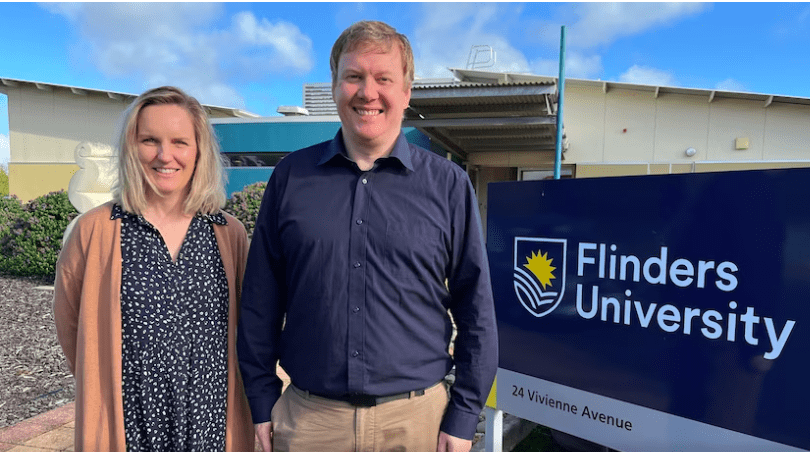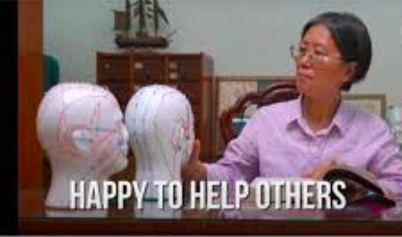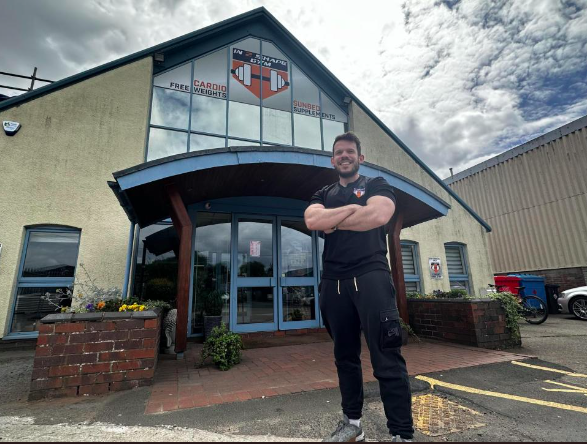Trending Stories
Pioneering Progress: Flinders University’s Regional Health Courses Addressing Workforce Shortage in South Australia

Pioneering Progress: Flinders University’s Regional Health Courses Addressing Workforce Shortage in South Australia
Flinders University, a prestigious Australian institution, is set to counteract regional workforce shortages with an innovative, state-wide health program.
A Fresh Take on Regional Health Education: Flinders University Takes Charge
In a bid to confront the ongoing healthcare workforce crisis in regional areas, Flinders University, a renowned South Australian institution, has revealed plans to launch a comprehensive suite of health programs. This initiative will provide essential education for allied health professionals and stimulate job growth in the region.
The program will officially launch in 2024, focusing on three crucial healthcare sectors – physiotherapy, speech pathology, and occupational therapy – and will be based at Flinders University’s campus in Mount Gambier.
Addressing the Regional Health Worker Shortage
South Australia’s southeast has witnessed a concerning deficit of allied health professionals. This shortage has resulted in longer wait times for appointments and a high staff turnover rate. Flinders University’s strategic move to train future staff locally has been met with enthusiasm from local health providers.
The new courses are part of a broader initiative aimed at attracting more healthcare workers to regional areas. According to Flinders University lecturer Ali Dymmott, students who study in their home regions are more likely to stay and contribute to the local workforce.
Prioritizing Local Education for Long-term Retention
“One of the key findings from our research shows that students who are able to study and gain work experience in their hometowns demonstrate better retention outcomes,” Dymmott explains. “By creating a study environment that encourages students to stay locally, we’re hopeful of reversing the trend of migration away from regional areas.”
Student admissions will prioritize those who have resided in a regional area anywhere in Australia for either two years in full or five years part-time.
Promoting Inter-Regional Collaboration
The course structure will enable students from Mount Gambier to connect with their peers in Port Pirie and Renmark, the other two regional towns selected for the program rollout. Furthermore, students will be given the opportunity to complete their learning and all placements within their region.
Strengthening Regional Health Services through Local Training
Flinders University aims to enroll at least 10 full-time students to start the degree in 2024, with plans to increase numbers each year. Local health business owners, like Melissa Reilly, an occupational therapy business owner in Mount Gambier, have expressed their support for the initiative.
According to Reilly, “Employees from regional areas not only have a wider skill set but also tend to stay longer. Offering study opportunities locally opens doors for those who are unable to relocate for their education.”
The Future of Healthcare in South Australia
With the upcoming launch of Flinders University’s regional health programs, a new era in healthcare service delivery is on the horizon. This initiative will not only alleviate the workforce shortages but also inspire students to invest their skills back into their communities.
Flinders University’s innovative health programs are a significant step towards a more sustainable and robust healthcare system in South Australia.
The Value of Locally Trained Health Professionals
Melissa Reilly provides a unique perspective as an occupational therapy business owner in Mount Gambier. In her experience, locally trained health professionals not only tend to stay longer in regional areas, but they also bring a wider skill set to their roles.
“We frequently see city-trained employees leave within a year, right when they’re fully trained,” Reilly noted. “On the other hand, individuals trained locally or those who have strong ties to the region tend to stay longer. Most of our staff either originated from the region or married into it.”
This observation aligns with Dymmott’s research, reinforcing the notion that encouraging local education can significantly improve workforce retention in the healthcare sector.
Creating Opportunities for Future Health Workers
However, launching these new regional health programs is only the first step. It’s equally crucial to ensure enough local businesses are prepared to offer placements for students, and sufficient teachers are available to run these courses.
Ms. Reilly, a stalwart supporter of the program, believes that the new health courses are pivotal for the success of the region. “We are continually struggling to attract occupational therapists to Mount Gambier and the Limestone Coast.
With this opportunity for people to study locally, it’s a great chance for those who can’t move away for education. They can study right here. It’s an important strategy for recruiting to the jobs needed across the region.”
Towards a Stronger Regional Healthcare System
Flinders University’s new health programs offer a beacon of hope for regional health services in South Australia. By bringing high-quality education to the local level, these initiatives could significantly reduce workforce shortages and provide a major boost to the region’s healthcare capabilities.
With the promise of more locally trained health professionals, South Australia’s regional healthcare landscape is poised for a significant transformation.
This change will not only help retain talent within the region but will also enrich the communities they serve, fostering a more robust and efficient healthcare system.
The original news source can be found here.
com/flinders-university regional-health-courses
Trending Stories
Can Supplements Fix Belly Fat? Experts Weigh in on the “Cortisol Pouch” Myth
Trending Stories
Sister Regina Liu: Empowering Health Through Acupuncture

Sister Regina Liu: Empowering Health Through Acupuncture
In the bustling world of healthcare, Sister Regina Liu stands out as a beacon of holistic healing. Her journey into the world of acupuncture is not only inspiring but also transformative for the countless individuals she has treated.
Through her dedication, Sister Regina has brought traditional Chinese medicine to the forefront, offering an alternative and complementary approach to modern medical practices.
The Journey of Sister Regina Liu
Sister Regina Liu’s path to becoming a renowned acupuncturist began with her deep-rooted interest in holistic health. Born into a family that valued traditional Chinese medicine, Sister Regina was exposed to the benefits of acupuncture from a young age. Her early fascination turned into a lifelong passion as she pursued formal education and training in the field.
Acupuncture: Bridging Ancient Wisdom and Modern Health
Acupuncture, a practice with origins in ancient China, involves inserting thin needles into specific points on the body to balance the flow of energy or “qi.” Sister Regina Liu has mastered this ancient art, using it to address a wide range of health issues.
From chronic pain to stress management, her expertise has provided relief to many who had exhausted conventional treatment options.
Impact on Community Health
Sister Regina’s impact extends beyond individual treatments. She has been instrumental in educating the community about the benefits of acupuncture, breaking down misconceptions, and making the practice more accessible.
Her workshops and seminars have enlightened many about the holistic approach to health, emphasizing the interconnectedness of body, mind, and spirit.
Success Stories and Testimonials
The success stories of Sister Regina’s patients are a testament to her skill and dedication. Many individuals who had lost hope found solace in her treatments.
For instance, Maria, a long-time sufferer of migraines, experienced significant relief after just a few sessions with Sister Regina. Her story is just one of many that highlight the transformative power of acupuncture under Sister Regina’s care.
Challenges and Triumphs
Like any journey, Sister Regina’s path was not without challenges. Integrating acupuncture into mainstream healthcare faced resistance initially.
However, her perseverance and the undeniable results of her treatments gradually won over skeptics. Today, Sister Regina is not only respected in the field of acupuncture but also in the broader medical community.
The Science Behind Acupuncture
While acupuncture is rooted in ancient practices, modern science has begun to unravel the mechanisms behind its effectiveness. Studies have shown that acupuncture can stimulate the release of endorphins, the body’s natural painkillers, and improve blood circulation.
These scientific validations have further cemented acupuncture’s place in contemporary healthcare, thanks in part to advocates like Sister Regina Liu.
Acupuncture in Modern Healthcare
Sister Regina’s work exemplifies how traditional practices can complement modern medicine. Hospitals and clinics increasingly incorporate acupuncture into their treatment plans, recognizing its benefits in pain management, mental health, and overall well-being. This integration signifies a broader acceptance and understanding of holistic health practices.
Future Vision
Looking ahead, Sister Regina Liu envisions a future where acupuncture and traditional Chinese medicine are fully integrated into the global healthcare system. She continues to advocate for research, education, and policy changes that support the inclusion of holistic practices in mainstream medicine.
How to Get Started with Acupuncture
For those new to acupuncture, Sister Regina offers practical advice on getting started. She recommends finding a certified acupuncturist, understanding the treatment process, and maintaining an open mind. Her guidance helps demystify acupuncture, making it more approachable for newcomers.
Conclusion
Sister Regina Liu’s journey in empowering health through acupuncture is a remarkable tale of dedication, resilience, and success. Her contributions have not only alleviated individual suffering but also enriched the broader understanding of holistic health. As acupuncture continues to gain recognition, Sister Regina’s legacy will undoubtedly inspire future generations of healers.
FAQs
1. What conditions can acupuncture treat?
Acupuncture can address various conditions, including chronic pain, migraines, stress, anxiety, digestive issues, and more. It is also used to support overall wellness and balance.
2. Is acupuncture safe?
Yes, when performed by a certified and experienced acupuncturist, acupuncture is safe. It involves using sterile, single-use needles and adhering to proper hygiene practices.
3. How many sessions are needed to see results?
The number of sessions varies depending on the condition and individual response. Some may experience relief after one session, while others may need multiple treatments.
4. Does acupuncture hurt?
Acupuncture needles are very thin, and most people feel minimal to no discomfort. Some may feel a slight tingling or warmth at the needle site.
5. How do I find a qualified acupuncturist?
Look for acupuncturists who are certified by recognized professional organizations and have positive patient reviews. Personal recommendations and consultations can also help in making an informed choice.
References
Trending Stories
In 2 Shape Gym Unveils Major Expansion in Stourport
-

 Trending Stories1 year ago
Trending Stories1 year agoCDC: 1 in 4 Americans Still COVID-Free by End of 2022
-

 Health7 months ago
Health7 months agoHow Do Pawpaw Seeds Support Cardiovascular Health?
-

 Health5 years ago
Health5 years agoMeghan Trainor Shares Motivational New Song ‘Blink’
-

 Health2 years ago
Health2 years agoHow Long Does Monkey Pox Last Before It Surfaces in the Body?
-

 Health3 years ago
Health3 years agoWhat Causes Swollen Body? Understanding Edema and its Triggers
-

 Health3 years ago
Health3 years agoNutrition and the Importance of a Fitness Program – 3 Things to Know
-

 Health3 years ago
Health3 years ago5 Weird Reasons Why Pimples Disappear After Marriage
-

 Health2 years ago
Health2 years agoHealth Benefits Of Pawpaw Seed? 7 Things To Know







